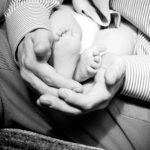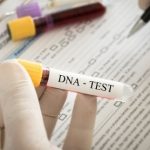I just came across an article distributed by the Slate discussing the above topic. This brought my thinking to the use of DNA and the idea of anonymity in general.
DNA testing makes them easy to trace
By Rachel Lehmann-Haupt Last Updated Monday, March 1, 2010, at 9:36 AM ET
When Donor 3066 signed up with the California Cryobank, he offered some basic information about himself on a piece of paper: that he had a BA in theater; that his mother was a nurse and his father was in the Baseball Hall of Fame; that his birthday was Sept. 18, 1968. He made it clear that he didn’t want to be found by signing a waiver of anonymity…
Donor 3066 was being sought out by Michelle Jorgenson, a 39-year-old waitress from Sacramento, Calif., whose daughter, Cheyenne, was born in 1998. When her daughter turned 5, Jorgenson joined the Donor Sibling Registry and began searching for other mothers and donor offspring who used Donor 3066. She was concerned because her daughter was sensitive to sounds and walked on her toes, and she wanted to know if other half-siblings were displaying similar behavior. Through the registry, she met a number of other mothers and half-siblings. She discovered that two had autism and two others showed similar signs of sensory disorder…
Jorgenson began her search by approaching a mother in her group with a son named Joshua and suggested he do a cheek swab so she could explore his paternal roots through a Y chromosome test. The mother agreed. Through the test, Michelle learned about some of Joshua’s genetic markers. A few weeks of searching on the Family Tree DNA Web site using these markers led to two families with matching DNA. Through one of the families, she met a woman who mentioned that she found the obit of a relative who was a former baseball manager, and three children were listed. Michelle suspected that this might be her donor’s father, so she looked up the phone number of his listed son. When Michelle called the number, the deceased man’s son answered the phone. She began to ask him questions: Was your father in the Baseball Hall of Fame? Were you born in Illinois? Did you ever donate sperm? When the man said yes, she asked him if his birthday was Sept. 18, 1968. When he answered yes, she burst into tears. “You’re the biological father of my daughter,” she said. He was shocked but agreed to talk to Cheyenne on the phone—and eventually allowed the two to come visit him in Los Angeles.
Although in this case there appears to be a happy out come for all parties this is not always the case. What about the request for privacy that Donor’s sign up for when they choose to remain anonymous? Is that even something that clinic should offer since there is no guarantee that the donor can’t be found? What are the options for men who do become donors? There are many questions that are raised in this article and very few answers, partly because technology is growing at such a fast rate and party because it appears in the article many clinics are ignoring this issue of privacy. Let us know what you think about this issue.




